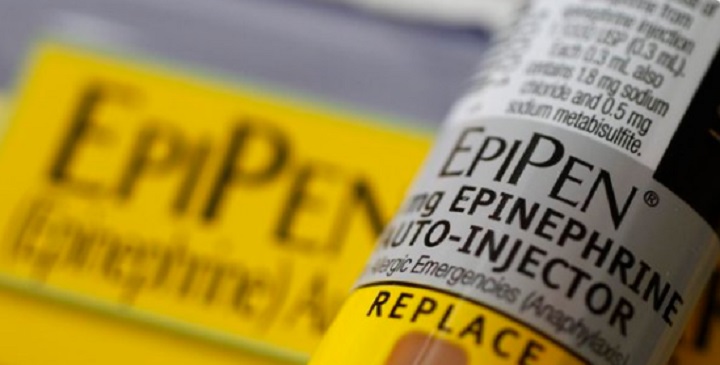Although it had just recently faced a great scandal for continuously raising the prices of EpiPens and have been performing quite poorly on the stock market, pharmaceutical company Mylan (NASDAQ:$MYL) just paid its chairman and former CEO, Robert Coury, $98 million for his 2016 pay package. As a result, Mylan may be faced with another scandal and more public scrutiny.
Already, a group of pension funds led by the New York City and New York State pension funds have started a campaign last month to overthrow Coury and five other Mylan directors from the board. The group also included the California State Teachers’ Retirement System (CalSTRS).
In a letter written on May 30, the pension funds highly criticized the excessive pay, saying that Mylan’s board has reached a new low in corporate leadership — urging shareholders to vote against Coury and the other five board directors at the company’s annual shareholders meeting on June 22. The funds — who own about $170 million worth of Mylan stock — also encouraged other shareholders to reject the pharmaceutical company’s proposal on executive compensation.
“Mylan’s bloated pay packages add insult to the injury investors have suffered as a result of its poor governance,” Thomas P. DiNapoli, a New York State Comptroller, stated.
Mylan’s high paycheques for its executives is another strike against the company after its EpiPen scandal in the summer of 2016. Continued price hikes of Mylan’s popular and life-saving allergy medicine which raised the price of two-pack EpiPens to $609 in just over seven years — more than a 400% increase — had parents and health professionals speaking out against the company. Many criticized the company for having a lack of empathy for people who need the medicine but now cannot afford it. As a result, Mylan’s CEO Heather Bresch had to testify before Congress, and the company had to launch a generic version of the EpiPen.
Shortly thereafter, Mylan was faced with allegations from the Department of Justice that the company overcharged Medicaid by wrongly classifying EpiPen. In October, the company — not admitting to any wrongdoings — settled the allegations by agreeing to pay $465 million to the government.
In 2016, Mylan’s stock fell by a whopping 29% while Coury and other executives still received a high pay package. Coury, who is widely seen as the one responsible for turning Mylan into a globally leading company, took on the role of chairman in June 2016 after serving as an executive chairman when he stepped down as CEO in 2012. His pay for 2016 was a $1.6 million salary, a $20 million bonus, a $50.8 million in stock awards, and a $22.7 million in “other compensation”.
Mylan defended the excessive pay, saying that Coury earned the pay due to serving 15 years as a senior executive — the period of time in which Mylan’s market capitalization grew seven-fold. The company also related it to Coury’s retirement as executive chairman.
However, the pension funds said that Mylan did not explain how Coury’s old executive chairman role is different from his new role as chairman. Most importantly, Coury’s salary largely understates the total $98 million — the pension funds noted that Coury received about 60 million in additional payment.
When it comes down to it, Mylan’s shareholders like the pension funds are tired of suffering under Mylan’s poor management. In its letter written on May 30, the pension funds wrote, “We believe the time has come to hold Mylan’s Board accountable for its costly record of compensation, risk and compliance failures.”
Featured Image: twitter










